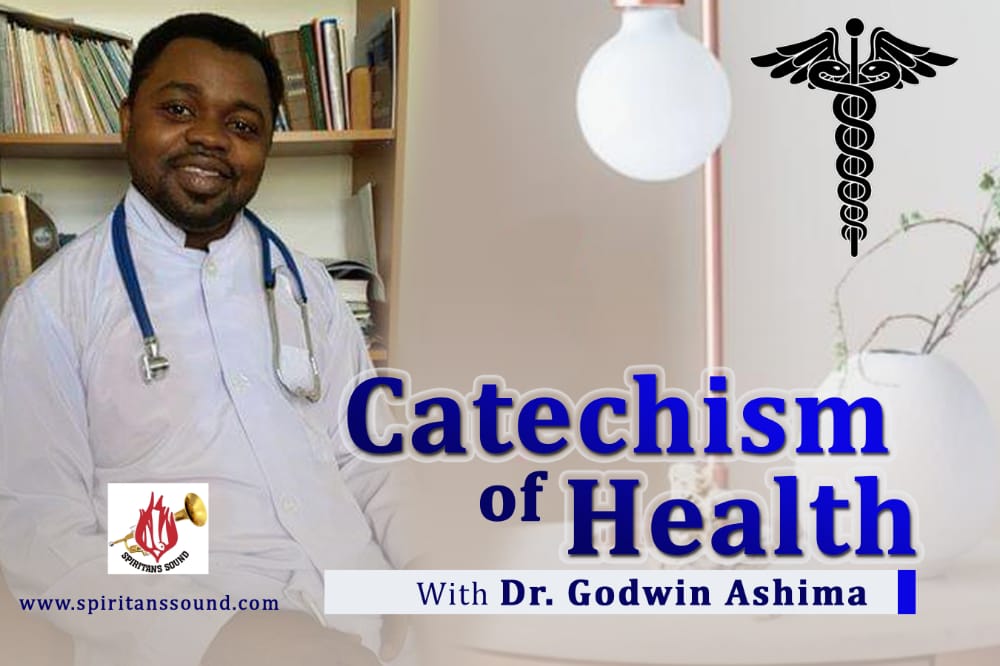The most spiritual thing to do at certain times in your daily routine is to sleep. This is not just spiritual but also of uttermost benefits to your mental, physical, economic, emotional and social life. Sleeping on an average of 8 hours per day means you spend one third of your life sleeping. To function while you are awake, you need to sleep. Your life and productivity is determined by the quality of your sleep. Yes, the quality of your sleep determines how your brain, your heart, your thoughts, actions, creativity, immune system, weight and healing process function. Lack of sleep has led to the death of many people directly or indirectly than some dreaded diseases within a given period. Sleep is the only activity we carry out daily that requires little or no effort yet yields tremendous benefits. To be able to function optimally, you need quality sleep. No wonder scripture says “He gives His beloved sleep” Ps. 127:2
What happens when you sleep?
Sleep is not a shutdown of your body as some erroneously think. Your body is active when you sleep and during that time, your brain processes a lot of information gathered while you were awake. The information or experience you gathered while awake is stored in your short term memory and while you sleep they are transferred to your long term memory and that process is called consolidation. That is why you retain information and perform better on memory tasks after you sleep.
While you sleep, your body rejuvenates, your tissues are repaired, hormones are synthesized and restoration takes place. That is the reason you wake up refreshed.
What is Insomnia?
The American Academy of Sleep Medicine define insomnia as repeated difficulty with sleep initiation, maintenance, consolidation, or quality that occurs despite adequate time and opportunity for sleep and that results in some form of daytime impairment.
Simply put, it is the condition where you find it difficult to fall asleep, difficult to stay asleep or waking up too early and inability to get back to sleep.
A diagnosis of insomnia does, however, increase the future risk for depression or anxiety. Insomnia may also be secondary to other disorders or conditions, or it may be a primary condition
Types of insomnia
Insomnia can be:
- Acute or short term
- Chronic or long lasting
Causes of Insomnia
- Acute or short term insomnia
This could be due to:
–stress due to work, finances, family problems, relationship status, traumatic event like illness or death of a loved one, school pressure, dealing with deadlines, etc. It usually lasts for days or several weeks.
-environment: e.g. unfamiliar place, excessive noise or light, uncomfortable bed or mattress, extreme cold or hot temperature, travelling across multiple time zones, frequently changing working shifts among others.
-others: Smart phones, TV, computers and electronics, internet, online and offline video games, irregular sleeping schedules, and too much eating just before bed time.
Acute or short term insomnia resolves when the causative agent is removed or when you become adapted to the situation.
- Chronic or long lasting insomnia
This is insomnia that lasts for a month or longer. Most cases are the symptom or side effect of some other medical conditions. Chronic insomnia could be as a result of and not limited to:
-past stress
-certain medical conditions e.g. diseases causing pain (Cancer, arthritis), chronic kidney diseases, Parkinson’s disease and Alzheimer’s disease, chronic lung diseases pain, diabetes, heart disease, asthma, gastroesophageal reflux disease (GERD), overactive thyroid, etc.
-certain medicines and substances such as alcohol, caffeine and tobacco, decongestants, antidepressants, stimulants, medications for asthma or blood pressure etc
–mental disorders like depression, anxiety disorders, schizophrenia etc. can cause insomnia.
–old age
What are the symptoms of insomnia?
Fatigue
Taking a long time to fall asleep after you lay down
Sleeping for only short periods
Being awake for much of the night
Waking up too early
Feeling as if you haven’t slept at all
Tiredness
Lack of energy
Difficulty concentrating
Reduced work performance
Who is at risk of having insomnia?
Insomnia can occur at any age but you are likely to be of risk of having insomnia if you are:
-A woman
-pregnant
-depressed
-having mental disorders
-over 60 years
-having financial difficulties
-living and inactive lifestyle
-African
What are the effects of insomnia?
-Slower responses to challenging reaction-time tasks.
-irritability
-problems with learning, concentration, and memory
-drowsiness while driving or handling equipment leading to accidents
– reduced quality of life
-depression
-Suicidal thoughts
-substance abuse
-anxiety
-High blood pressure and heart diseases
How long should you sleep?
| Age | Hours Needed | May be appropriate |
| Newborn to 3 months old | 14 – 17 hrs | 11 – 19 hrs |
| 4 to 11 months old | 12 – 15 hrs | 10 – 18 hrs |
| 1 to 2 years old | 11 – 14 hrs | 9 – 16 hrs |
| 3 to 5 years old | 10 – 13 hrs | 8 – 14 hrs |
| 6 to 13 years old | 9 – 11 hrs | 7 – 12 hrs |
| 14 to 17 years old | 8 – 10 hrs | 7 – 11 hrs |
| Young adults (18 to 25 years old) | 7 – 9 hrs | 6 – 11 hrs |
| Adults (26 to 64 years old) | 7 – 9 hrs | 6 – 10 hrs |
| Older adults (65+) | 7 – 8 hrs | 5 – 9 hrs |
Source: National Sleep Foundation
How do you prevent and treat insomnia?
- Lifestyle Changes
Your bedroom: Make it confortable and limit it to only a place of sleeping or the activities of the married.
Postpone your worries to the next day. Remember that sometimes the most spiritual thing to do is to sleep.
Drop your substance abuse and intake of tobacco, nicotine. Avoid chocolates, tea and coffee just before bed time.
A warm bath just before bedtime is helpful.
A relaxing music while in bed can make you sleep faster.
Good sex for the married leads to a quality sleep
- Counseling
It is recommended you talk with a counselor.
- Medication
See the doctor if you need medication and if your insomnia is the symptom or side effect of another problem, the doctor if possible will treat the underlying problem.
Final word
A good sleep is a gift from God to his His beloved Ps. 127:2. It is a sweet and quality sleep. The prophet Jeremiah spoke of it when he said:
“After this I awoke and looked around, and my sleep was sweet to me”. Jer. 31:26
From this day onwards, may you begin to enjoy sweet sleep.
Has this article helpful to you? You can also help others by sharing it.
Do you have more questions or contribution to this? Let me hear from you in the comment section








